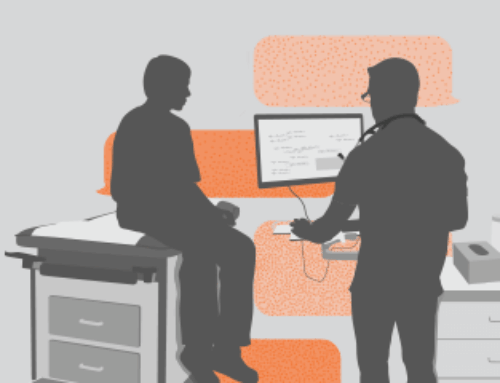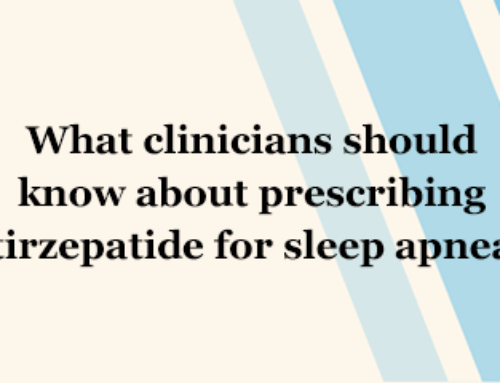By Bharath Reddy, MD; Stephen Hawkins, MD; and Maya Ramagopal, MD
A recent paper published by the All India Institute of Medical Sciences1 estimates that more than 100 million people living in India could have obstructive sleep apnea. Although there is no similar pediatric OSA data in India, 25% of India’s population of 1.4 billion are children. If we extrapolate Western data, which shows the prevalence of various sleep issues in children to be around 25%2, we are conservative in considering that India has 70-90 million children as of today with sleep problems. The impact of these sleep issues on the growth and development, neurobehavioral outcomes, metabolic changes and academic performance in children could pose significant morbidity in the years to come. The brunt of these outcomes will need to be addressed by the pediatricians, family medicine providers, otorhinolaryngologists, dentists and developmental psychologists of the country.
A recent poll of general pediatricians across India conducted by Dr. Reddy3 shows that the mean knowledge score of pediatricians on sleep issues in children was less than 54%, suggesting most providers only know or understand about half of important sleep issues. Only 39% of pediatricians are asking sleep-related questions in clinic practice, and only 10% feel confident to manage sleep problems. About 93% of them claimed that they had not received even a single hour of training in pediatric sleep, with all of them recognizing the need for pediatric sleep training in India.
Prior to 2022, there was no formal training program in pediatric sleep for doctors anywhere in India, with only three trained pediatric sleep specialists who received their training abroad. This immense gap needed to be filled immediately, hence the impetus toward global collaboration between Dr. Bharath Reddy from Shishuka Children’s Specialty Hospital in Bengaluru, India, and University of Colorado’s Dr. Stephen Hawkins and Dr. P.K. Vedanthan from the Children’s Hospital Colorado Breathing Institute and Global Chest Initiatives, respectively. Thus, the Diploma in Pediatric Sleep Medicine (DPSM) was born.
Our goal was to bring the pediatric sleep expertise and specialties with Western-based training to physicians across India. The course was a six-month hybrid theory webinar and in-person practical course. Faculty from Children’s Hospital Colorado and University of Colorado readily accepted invitations to teach classes. Faculty included behavioral psychologists Dr. Stacey Simon and Dr. Lisa Meltzer, otorhinolaryngologist Dr. Norman Friedman, child neurologist Dr. Pinar Polat, respiratory therapist and RPSGT Su Linstrom, and pulmonologists Dr. Benjamin Hughes and Dr. Stephen Hawkins, all with expertise and their own necessary niche in pediatric sleep medicine. The inspiration for this collaboration came from the precedent that had been set by the trailblazers Dr. Andrew Liu in Colorado and Dr. P.K. Vedanthan, who spent time both in Colorado and Bengaluru, India, for similar asthma and allergy training.
The DPSM covers the breadth of pediatric sleep medicine over six months with 28-30 students enrolled each session. The syllabus was carefully formulated by Drs. Reddy and Hawkins to take into consideration the cultural differences and needs of India. The theory didactics cover sleep history taking, infant and adolescent-specific sleep issues such as insomnia, physiology of sleep, sleep-disordered breathing, circadian rhythm abnormalities, movement disorders and parasomnias, AASM scoring of pediatric polysomnography, and sleep issues in children with autistic spectrum disorders, genetic syndromes and obesity. The students, who are all practicing physicians, are provided assignments to present cases and journal clubs, through which teaching, assessment and feedback occur. The culmination of the six-month online theory sessions is an online assessment with questions provided by each faculty member, then followed by a two-day in-person practical workshop in Bengaluru where students are trained in connecting PSG leads, interpretation of PSG epochs, initiation and titration of non-invasive ventilation, and case discussions. Each participant receives a diploma after completing the course with a passing score and then joins a growing international cadre of pediatric sleep medicine enthusiasts communicating and sharing via secure messaging platforms.
Since its inception in January 2022, three batches have completed the diploma with 87 graduates from across the length and breadth of India, including some students from Nepal and United Arab Emirates. Following the completion of the program, many graduates were the first in their cities and regions to set up dedicated or focused pediatric sleep practices and pediatric sleep labs. Furthermore, the graduates were invited to speak at various pediatric conferences on sleep, which was the first time this topic has been addressed at conferences. These small but significant milestones are paving the path to open the gates of knowledge, initiate management, and create many firsts in pediatric sleep in India.
Bharath Reddy, MD, is the medical director at Shishuka Children’s Specialty Hospital in India.
Stephen Hawkins, MD, is a pediatric pulmonologist at Children’s Hospital Colorado and associate professor at University of Colorado School of Medicine.
Maya Ramagopal, MD, is a pediatric pulmonologist and professor of pediatrics at Rutgers.
This article appeared in volume eight, issue four of Montage magazine.
References
- Suri TM, Ghosh T, Mittal S, Hadda V, Madan K, Mohan A. Systematic review and meta-analysis of the prevalence of obstructive sleep apnea in Indian adults. Sleep Med Rev. 2023 Oct;71:101829. doi: 10.1016/j.smrv.2023.101829. Epub 2023 Jul 20. PMID: 37517357.
- Meltzer LJ, Mindell JA. Sleep and sleep disorders in children and adolescents. Psychiatr Clin North Am. 2006 Dec;29(4):1059-76; abstract x. doi: 10.1016/j.psc.2006.08.004. PMID: 17118282.
- Reddy KRBK, Bhattacharya B. Knowledge, Attitude, Practices, and Training of Pediatricians in India Regarding Sleep Disorders in Children: A Need to Wake Up! Indian J Sleep Med 2023;18(1):15–17.





